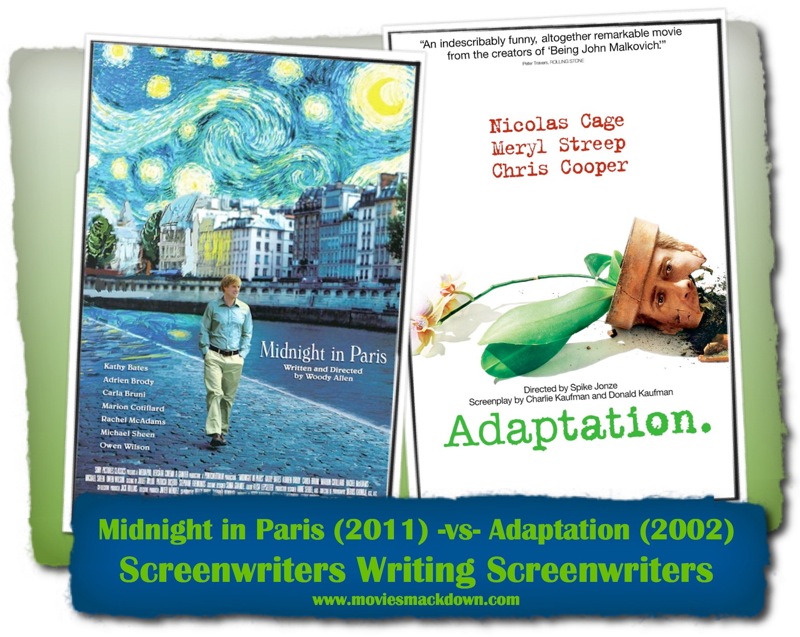
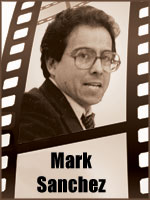 The Smackdown
The Smackdown
If there’s anything that sounds less appealing than watching the mental anguish of a blocked writer, we can’t imagine what it is. In fact, we can’t even begin to visualize… hold on a second… getting my thoughts straight… just have to play some Spider Solitaire while I, um… trying to focus… Huh — I didn’t know we had Cheetos….
Fifteen hours later.
Right, where were we? Oh yeah, writer’s block — it’s not pretty. Not cinematic either, until Charlie Kaufman came along and sweated blood for three years, cracking the code of how to translate to film his own innermost creative struggle in a deeply personal, throw-out-the-rulebook kind of way. His resulting screenplay for Adaptation became the Holy Grail of screenwriter movies, and under the brilliant direction of Spike Jonze (Being John Malkovich, Where the Wild Things Are), earned a slew of Academy Award nominations, including one for Best Adapted Screenplay.
Kaufman and Jonze took their basic conceit to dizzying new heights, but the idea of basing a protagonist on one’s self and thrusting him into a world populated by famous characters, both real and fictional, has been done before — notably by Woody Allen. Now the Wood-Man’s at it again with Midnight in Paris, the 44th film he’s written and directed.
Two unhinged lead characters, two brilliant supporting casts, two ambitiously plotted mashups of a writer’s comic trip down the rabbit hole. Anyone want some Cheetos?
The Challenger
Woody Allen is on familiar turf with Midnight in Paris. His New Yorker short story “The Kugelmass Episode” and his later film The Purple Rose of Cairo both utilized a similar template, as did Play It Again, Sam, which he wrote but didn’t direct.
This time out the story is about a hack screenwriter who visits Paris, unleashing a rich creative fantasy that clashes with his unsatisfying, but well-tended life. Â As usual, actors flock to Allen’s films. Which explains why his latest charm offensive features three Oscar winners — plus the First Lady of France — and a great supporting cast, burnishing the proceedings to a high gleam.
Gil (Owen Wilson) and his fiancée, Inez (Rachel McAdams), accompany her parents to Paris on a business trip. It’s not going well. Gil loves the French and France; his fiancée and future in-laws do not –and their enthusiasm for Gil is evaporating quickly. They don’t let up. No side trip, no dinner goes uncriticized.
Gil has other problems too. A successful Hollywood screenwriter, he’d rather be a novelist in France, but his first novel lacks a certain je nais se quoi. Besides, Inez prefers the movie colony life in Malibu. She also has an annoying friend in town, Paul (Michael Sheen, from Frost/Nixon and The Queen), who knows everything and says so. With his life at a turning point, Gil wanders Paris alone at night and is magically transported into the Jazz Age, where he partakes in a moveable feast, hobnobbing with people he likes much better. Among them: Ernest Hemingway, Scott and Zelda Fitzgerald, Gertrude Stein (Kathy Bates), who helps him retool his novel, and a would-be fashion designer, Adriana (Marion Cotillard), whose allure would make even a more grounded man lose his grip on reality.
Ultimately, Gil’s real world heads in one direction, his fantasy life in another. Amid the yearning and self-doubt he faces the decision of a lifetime.
The Defending Champion
Charlie Kaufman’s screenwriting breakthrough in Adaptation was to dramatize the neuroses and fantasies playing out inside his screenwriter character’s head. The fact that he named the character Charlie Kaufman, gave him an identical twin alter-ego (both played by Nicolas Cage), and made the story a surreal iteration of his own struggle to write the screenplay we were watching made it all the more heartfelt and resonant.
As the story goes, after 13 weeks of increasing self-flagellation, Charlie Kaufman (Cage) still can’t produce a screen adaptation of Susan Orlean’s book, The Orchid Thief. Writer’s block consumes him. He’s a twisted mess of self-loathing and failure, which we know from hearing his none-too-subtle thoughts in voice-over: “I’m losing my hair. I’m fat and repulsive.†Sexual fantasies don’t help. What’s worse, his incipient-screenwriter brother Donald has, without a care in the world or an original thought in his head, hacked out a piece of formulaic tripe that is selling for big bucks. That doesn’t help Charlie’s outlook one bit.
Out of desperation, Charlie goes to the source: He stalks Orlean (Meryl Streep) and the subject of her book, orchid thief John Laroche (Chris Cooper). Hoping to find some passion to overcome his creative roadblock, Charlie stumbles instead onto a comically tawdry sidetrack of adultery, drug abuse and attempted murder.
The movie goes somewhat off the rails in the third act, as the real Charlie Kaufman unleashes his imagination to create a tortured fever-dream that parallels the fictional Charlie’s emotional breakdown. Kaufman writing about Kaufman writing about Orlean writing about Laroche — it’s sometimes hard to find reality in this hall of mirrors, but as absurdist art, it works extremely well.
The Scorecard
Both films are heavyweight entertainments with a lot on their minds, but tonally, they differ greatly. Adaptation is very funny, but it’s the suffering of the artist that sticks in your gut. The plot is so complex that you need to see it at least twice to fully appreciate it. That’s not necessarily a knock. The first time is outrageous fun and the second time is rewarding film school.
You don’t necessarily need to see repeat viewings of Midnight in Paris, but you’ll probably want to. Romance fills the air, even though Gil has trouble maintaining it in real life. The film plays like a love sonnet to another time and place, and Allen is in top form — something we haven’t had the pleasure of saying for a good long while.
Midnight in Paris is reminiscent of the filmmaker’s earlier work, but with a mellowed out maturity that suits him well. His characters have long been preoccupied with plucking happiness from the push-pull of the urban environment, but here, despite the blatant abuse by his fiancée and her family, there’s a sense that things will work out for Owen Wilson’s Gil — a welcome relief for filmgoers who’ve grown weary of Allen’s angst.
Like the Allen film, Adaptation was filled with fine performances. And even though Nicholas Cage has managed to get himself reduced to the butt of an SNL skit these days, remember that he was Oscar-nominated for the dual-lead role. Cooper won as a supporting actor. Streep was nominated too. So was Kaufman, for adapting Adaptation, along with his non-existent brother Donald. (Is this film meta enough for you?) The reason the actors were so good was partly because they all knew they were delivering performances for something that was going to make a little history.
If there were ever a couple of films where the screenplay needs to be given special weight, though, it probably would include these two about screenwriters in crisis. Midnight in Paris is top-notch, but it comes to life from a place in Woody Allen’s consciousness that we’ve been exposed to before. On the other hand, Kaufman’s Adaptation spin-kicked viewers to the head with its mind-bending journey. It was definitely riskier.
When it comes to the direction, we know what to expect from Woody Allen, but he is more assured here than we’re used to. Â But seeing Spike Jonze strut his superior talent creating work that is flashy and fun was even more unexpected.
Deciding which film about a screenwriter is the better film is like writing a screenplay in the first place. Every working screenwriter knows that although you can zig right or zag left eventually you wil have a make a decision. Sooner is better than later, so let’s get to it.
The Decision
Strong movies. Strong casts. Both satisfy. Judging this Smackdown was pure pleasure.
I saw clearly that both of these films cut against the grain. Still, even though there is a huge gimmick embedded in Allen’s film, the film is not gimmicky itself. But there’s something else.
It is possible, while watching Midnight in Paris, to think that maybe Woody Allen has finally found someone capable of playing the Woody Allen role besides himself. Owen Wilson nails it. Look for this director and this star to work together again. Don’t look for much from Nicholas Cage anymore.
My pick surprises even me: Midnight in Paris, by a hair. But I’m betting my twin brother Donald would disagree.

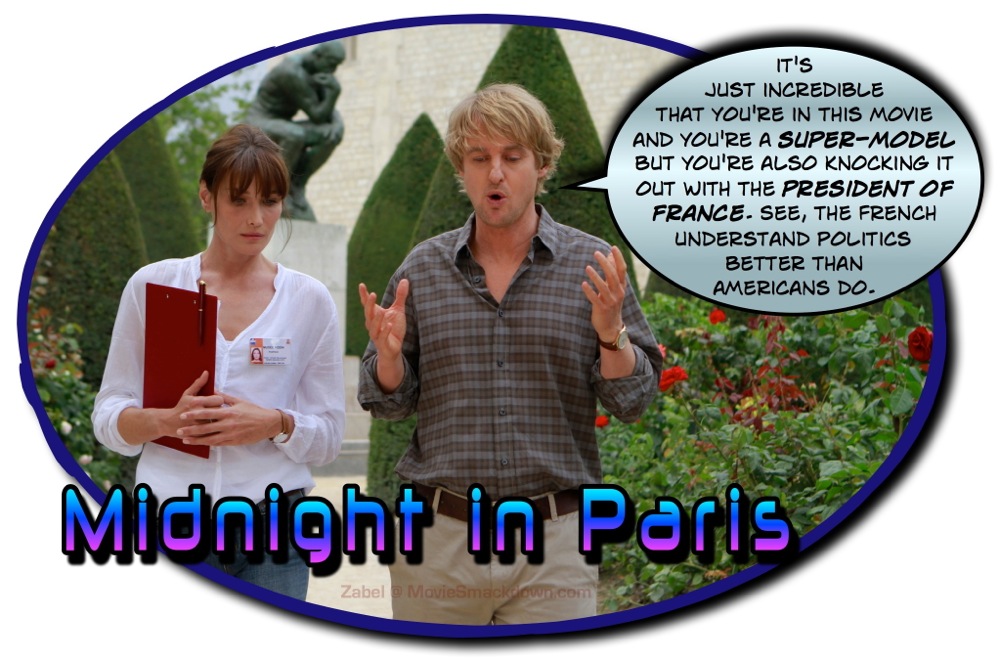
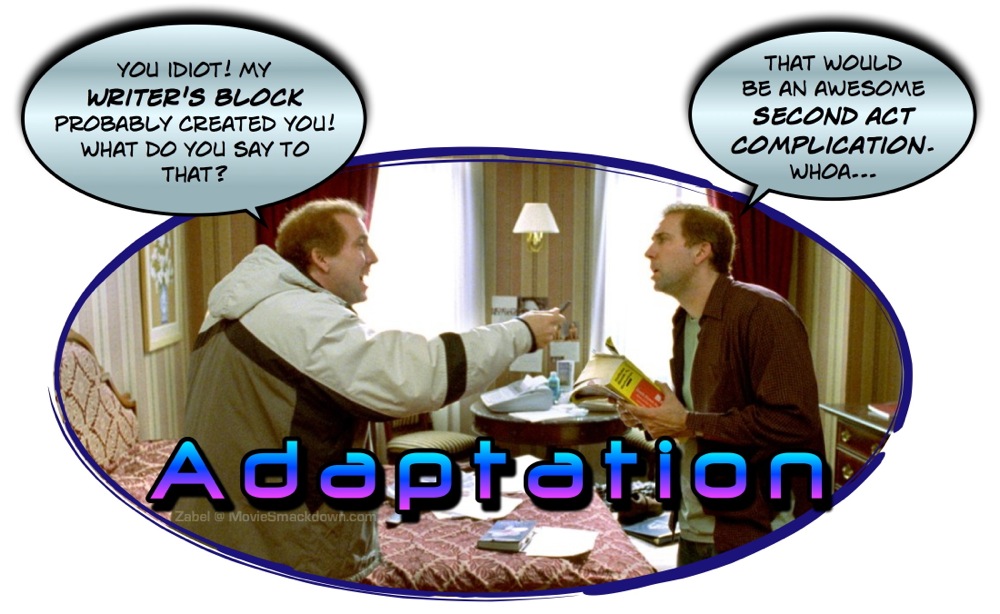

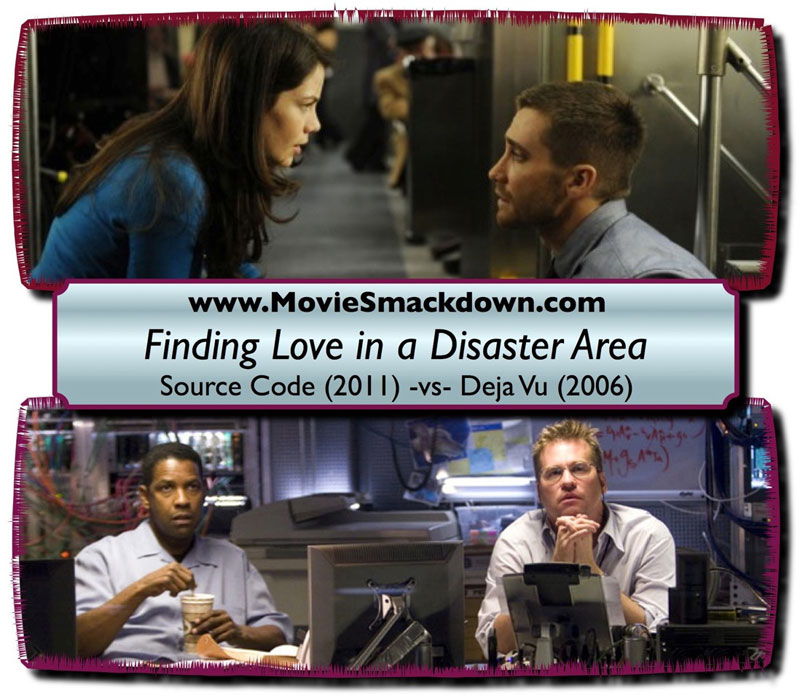
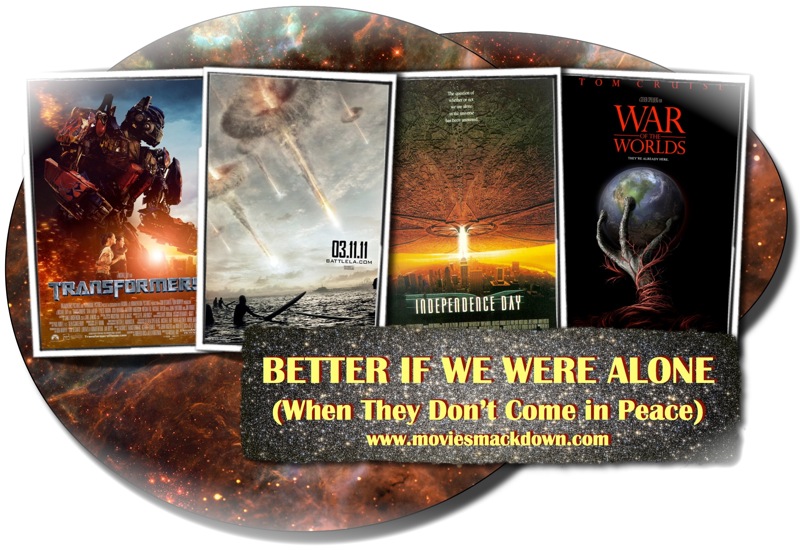
As much as I loved Midnight In Paris, and I REALLY loved Midnight In Paris, I’d have to give the nod to Adaptation. That Kaufman succeeded in turning a subject as seemingly uncinematic as a writer’s struggle into such a compelling emotional experience is staggering.
Woody, as great as his work is with MIP, is still playing notes on the same piano he usually plays. Kaufman’s standing on top of the piano on one leg, throwing golf balls at the keys, and, somehow, someway, an remarkable song is coming out.
Adam… I freaking love that metaphor!
Am I the only person who hated Adaptation?
Can’t wait to see Midnight in Paris.
Just got back from Midnight in Paris. A truly fine film. I will probably watch it again in the future.
Both of these films are such joys to watch because they both assume you know a thing or two.
But, for me, great as Woody’s new film is, it still loses on points to Adaptation.
Surprising all the way through. More insightful take on what is really going on in a screenwriter’s mind.
Zabel, out.
Great review Mark. I had forgotten how good Adaptation actually was, and this reminded me. I can’t wait to see Midnight In Paris, though, because any film featuring the City Of Light reminds me of my trip there a few years ago, where I fell in love with it.